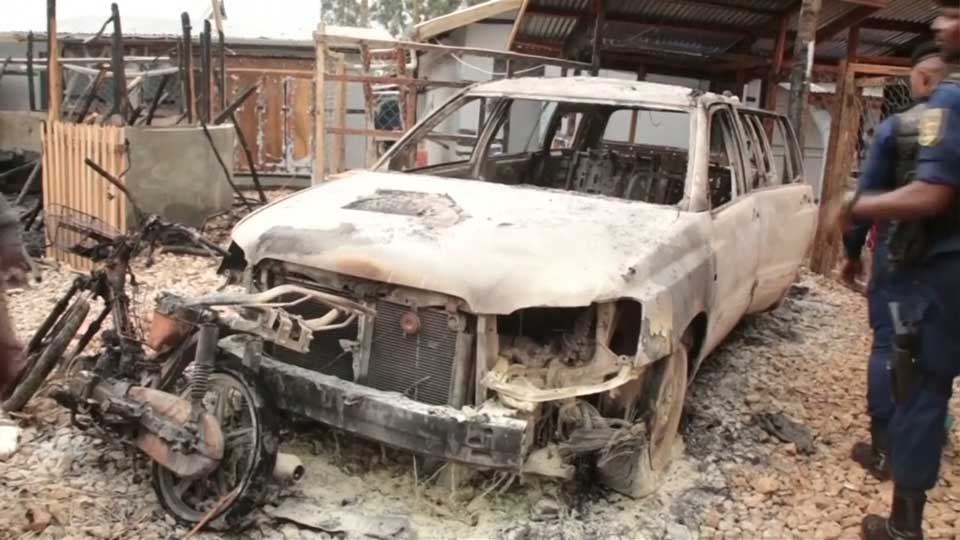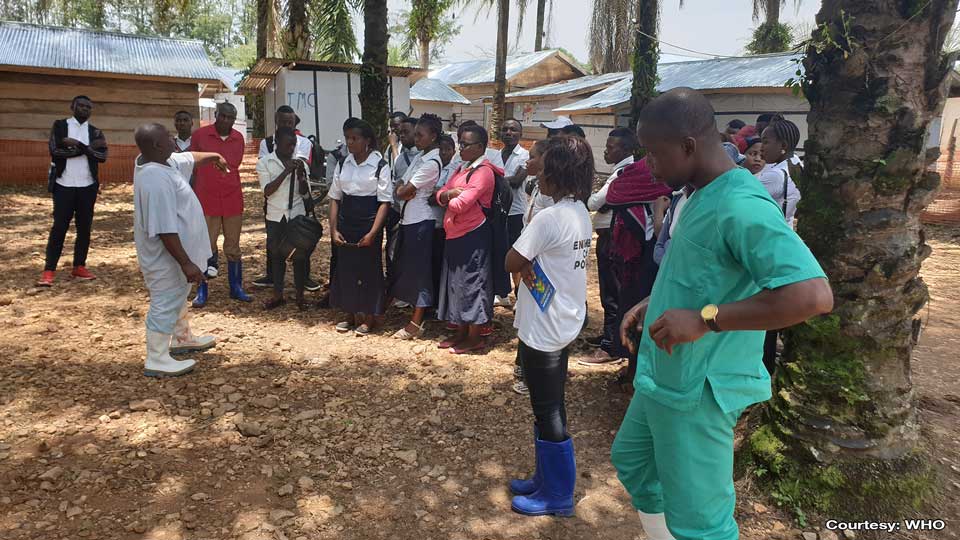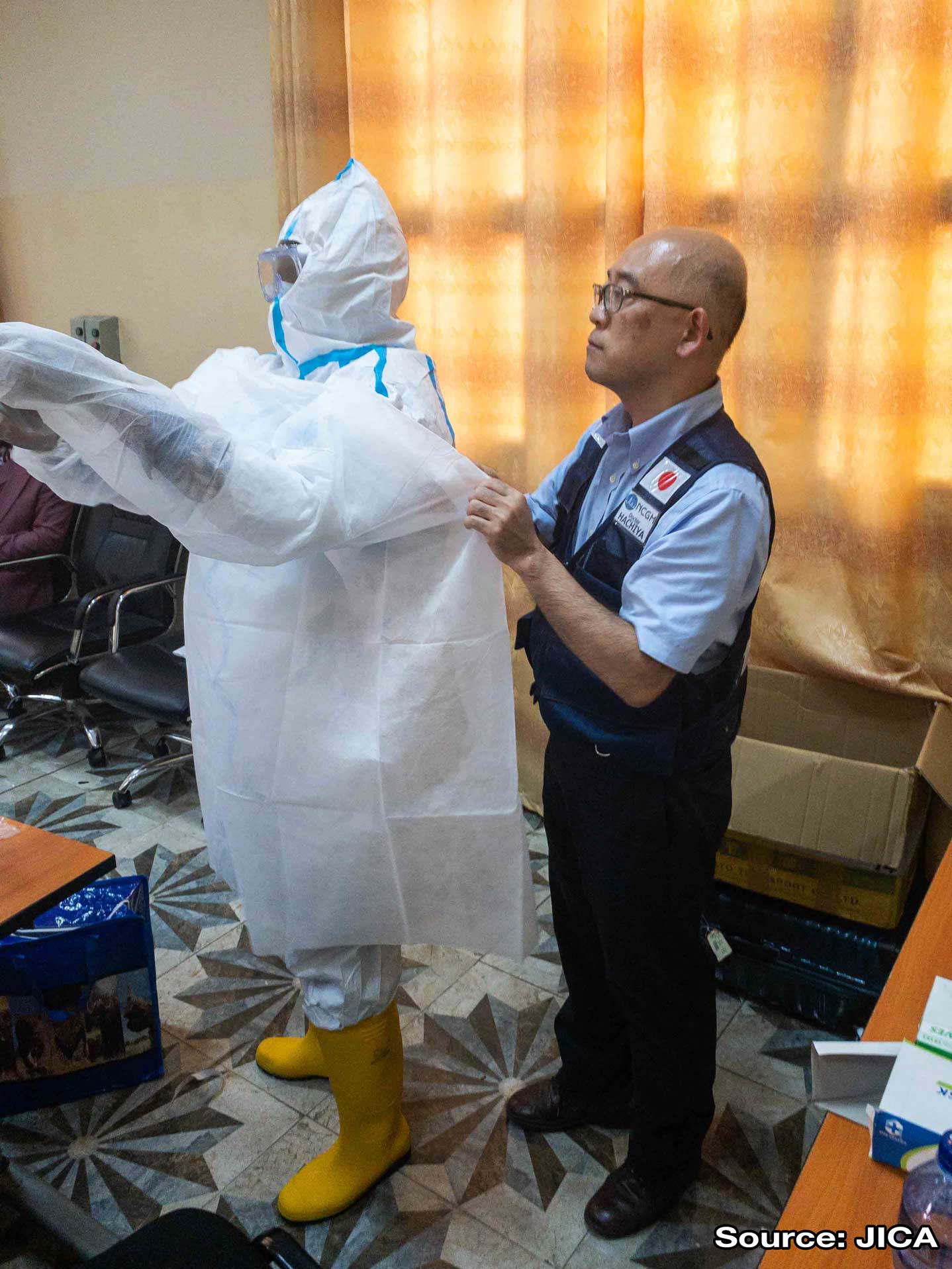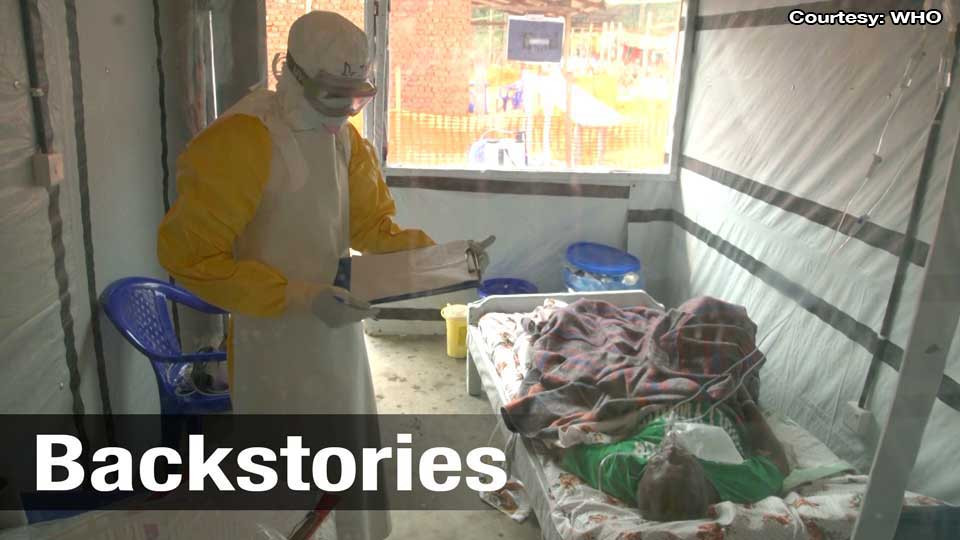Dr. Mory Keita is a WHO Field Coordinator in the city of Beni in North Kivu, right in the heart of the Ebola epidemic. He has spent months on the ground responding to the outbreak, and he says things are improving thanks to vaccinations, earlier detection and better coordination between local and international responders in DR Congo.
The WHO's latest update says there were 57 new confirmed cases in the week to September 17 in the provinces of North Kivu and Ituri. It's a minor increase from the previous week, which -- at 40 -- had seen the lowest figure in six months.
But the organization warns that there is no way to be sure the good news will continue. It is still a challenge to trace the movement of people from Ebola zones to other areas where the situation is under control. New hotspots are emerging, and the WHO says the national and regional risk levels remain very high.
The fight against Ebola at a crossroads
Countries in Africa have been battling Ebola on and off for 40 years.
In the early stages of the current outbreak, health experts flew in from many countries to try to ensure there was no repeat of the outbreak that ravaged West Africa between 2014 and 2016. The disease killed more than 11,000 people in that period.
Last month, scientists said they had found two drugs that appeared to be effective in patients with early symptoms. The drugs are still undergoing clinical tests, but the news raised hope that there may one day be a cure. Vaccines have also become more readily available in the country. They are not commercially licensed, but health officials say they offer a high degree of protection.
Insecurity and mistrust hampering progress
But not many experts are forecasting a rosy road ahead. The WHO's regional head, Dr. Matshidiso Moeti, says their work is being hindered by suspicion and mistrust of outsiders in a country that suffered decades of conflict. She says international experts and even health officials from within the country are considered outsiders.
The WHO says there have been more than 200 violent attacks against healthcare workers this year, some of them fatal. A doctor deployed by the WHO was killed in April in an attack on a hospital in Butembo, North Kivu.
In addition, community violence in Lwemba in Ituri Province has led to the suspension of all response activities until further notice.
More than 100 armed groups are active in the Ebola hotspots, which are also mineral-rich areas. Tensions over land and resources remain high there. Health officials say some people who are poorly informed about the disease mistakenly view Ebola response centers as "death traps."

Community commitment leads to Ebola resilience
Despite the security problems, Dr. Keita says he and his team are staying, and are determined to stop the outbreak by the end of the year. "Our mission is to stay and deliver," he says. "We have to finish the job."
He says the key will be getting a commitment from local community members. The WHO is trying to involve youth associations, women's groups and religious organizations -- community groups that have already built up strong trust.

International support has to continue
The Japanese government has sent an emergency response team to cooperate closely with locals.
Dr. Masahiko Hachiya was part of the team. He is an expert on infectious diseases and has just returned from Kisangani, a city that hosts an international airport. The city requires higher levels of quarantine and surveillance to ensure travelers don't bring the virus in.
Dr. Hachiya says the response team spent a lot of their time building trust with local people, and teaching health officials the basics of disease prevention and control.

Dr. Hachiya says he was surprised to discover that even healthcare workers didn't know how to secure clean water. Some had no knowledge of hazmat suits, others didn't know how to put them on and take them off.
The United States, the UK and other countries have been offering help, spending millions of dollars on training for healthcare workers and helping communities understand the disease.
Ebola can only be truly eradicated with continuous support from the international community and a lot more local understanding.


